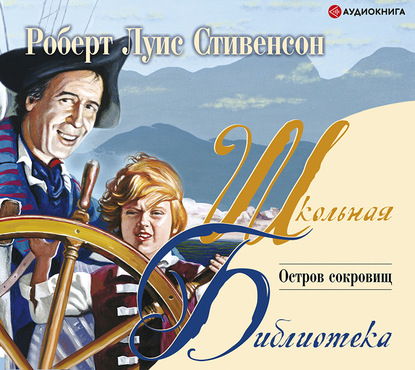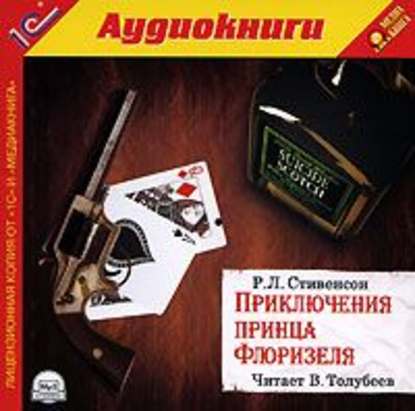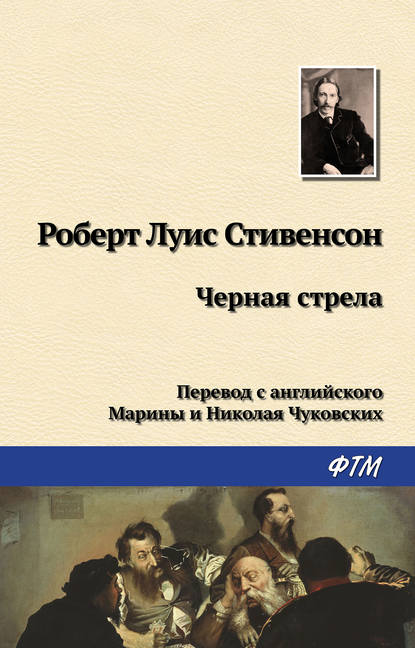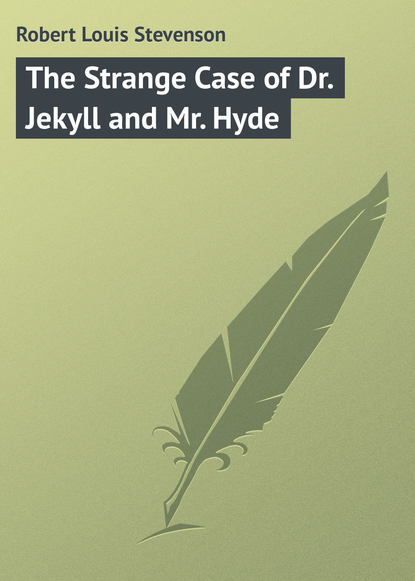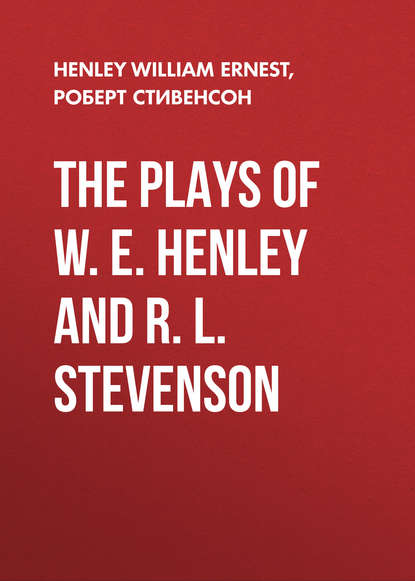
Полная версия
The Plays of W. E. Henley and R. L. Stevenson
Brodie. You will?
Moore. Ay will I. If I thundering well swing for it. And as for clearing out? Muck! Here I am, and here I stick. Clear out? You try it on. I’m a man, I am.
Brodie. This is plain speaking.
Moore. Plain? Wot about your father as can’t walk? Wot about your fine-madam sister? Wot about the stone-jug, and the dock, and the rope in the open street? Is that plain? If it ain’t, you let me know, and I’ll spit it out so as it’ll raise the roof off this ’ere ken. Plain! I’m that cove’s master, and I’ll make it plain enough for him.
Brodie. What do you want of me?
Moore. Wot do I want of you? Now you speak sense. Leslie’s is wot I want of you. The Excise is wot I want of you. Leslie’s to-night and the Excise to-morrow. That’s wot I want of you, and wot I thundering well mean to get.
Brodie. Damn you!
Moore. Amen. But you’ve got your orders.
Brodie (with pistol). Orders? hey? orders?
Smith (between them). Deacon, Deacon! – Badger, are you mad?
Moore. Muck! That’s my motto. Wot I ses is, has he got his orders or has he not? That’s wot’s the matter with him.
Smith. Deacon, half a tick. Humphrey, I’m only a light weight, and you fight at twelve stone ten, but I’m damned if I’m going to stand still and see you hitting a pal when he’s down.
Moore. Muck! That’s wot I think of you.
Smith. He’s a cut above us, ain’t he? He never sold his backers, did he? We couldn’t have done without him, could we? You dry up about his old man, and his sister; and don’t go on hitting a pal when he’s knocked out of time and cannot hit back, for, damme, I will not stand it.
Moore. Amen to you. But I’m cock of this here thundering walk, and that cove’s got his orders.
Brodie (putting pistol on bench). I give in. I will do your work for you once more. Leslie’s to-night and the Excise to-morrow. If that is enough, if you have no more.. orders, you may count it as done.
Moore. Fen larks. No rotten shirking, mind.
Brodie. I have passed you my word. And now you have said what you came to say, you must go. I have business here; but two hours hence I am at your.. orders. Where shall I await you?
Moore. What about that woman’s place of yours?
Brodie. Your will is my law.
Moore. That’s good enough. Now, Dock.
Smith. Bye-bye, my William. Don’t forget.
SCENE IXBrodie. Trust me. No man forgets his vice, you dogs, or forgives it either. It must be done: Leslie’s to-night and the Excise to-morrow. It shall be done. This settles it. They used to fetch and carry for me, and now.. I’ve licked their boots, have I? I’m their man, their tool, their chattel. It’s the bottom rung of the ladder of shame. I sound with my foot, and there’s nothing underneath but the black emptiness of damnation. Ah, Deacon, Deacon, and so this is where you’ve been travelling all these years; and it’s for this that you learned French! The gallows.. God help me, it begins to dog me like my shadow. There’s a step to take! And the jerk upon your spine! How’s a man to die with a night-cap on? I’ve done with this. Over yonder, across the great ocean, is a new land, with new characters, and perhaps new lives. The sun shines, and the bells ring, and it’s a place where men live gladly; and the Deacon himself can walk without terror, and begin again like a new-born child. It must be good to see day again and not to fear; it must be good to be one’s self with all men. Happy like a child, wise like a man, free like God’s angels.. should I work these hands off and eat crusts, there were a life to make me young and good again. And it’s only over the sea! O man, you have been blind, and now your eyes are opened. It was half a life’s nightmare, and now you are awake. Up, Deacon, up, it’s hope that’s at the window! Mary! Mary! Mary!
SCENE XBrodie, Mary, Old Brodie(Brodie has fallen into a chair, with his face upon the table. Enter Mary, by the side door pushing her father’s chair. She is supposed to have advanced far enough for stage purposes before Brodie is aware of her. He starts up, and runs to her.)
Brodie. Look up, my lass, look up, and be a woman! I.. O kiss me, Mary I give me a kiss for my good news.
Mary. Good news, Will? Is it changed?
Brodie. Changed? Why, the world’s a different colour! It was night, and now it’s broad day and I trust myself again. You must wait, dear, wait, and I must work and work; and before the week is out, as sure as God sees me, I’ll have made you happy. O you may think me broken, hounds, but the Deacon’s not the man to be run down; trust him, he shall turn a corner yet, and leave you snarling! And you, Poll, you. I’ve done nothing for you yet; but, please God, I’ll make your life a life of gold; and wherever I am, I’ll have a part in your happiness, and you’ll know it, by heaven! and bless me.
Mary. O Willie, look at him; I think he hears you, and is trying to be glad with us.
Brodie. My son – Deacon – better man than I was.
Brodie. O for God’s sake, hear him!
Mary. He is quite happy, Will, and so am I.. so am I.
Brodie. Hear me, Mary. This is a big moment in our two lives. I swear to you by the father here between us that it shall not be fault of mine if this thing fails; if this ship founders you have set your hopes in. I swear it by our father; I swear it by God’s judgments.
Mary. I want no oaths, Will.
Brodie. No, but I do. And prayers, Mary, prayers. Pray night and day upon your knees. I must move mountains.
Old Brodie. A wise son maketh – maketh —
Brodie. A glad father? And does your son, the Deacon, make you glad? O heaven of heavens, if I were a good man.
Act-DropACT III
TABLEAU V.
King’s Evidence
The Stage represents a public place in Edinburgh.
SCENE IJean, Smith, and Moore(They loiter in L., and stand looking about as for somebody not there. Smith is hat in hand to Jean; Moore as usual.)
Moore. Wot did I tell you? Is he ’ere, or ain’t he? Now, then. Slink by name and Slink by nature, that’s wot’s the matter with him.
Jean. He’ll no be lang; he’s regular enough, if that was a’.
Moore. I’d regular him; I’d break his back.
Smith. Badger, you brute, you hang on to the lessons of your dancing-master. None but the genteel deserves the fair; does they, Duchess?
Moore. O rot! Did I insult the blowen? Wot’s the matter with me is Slink Ainslie.
Smith. All right, old Crossed-in-love. Give him forty winks, and he’ll turn up as fresh as clean sawdust and as respectable as a new Bible.
Moore. That’s right enough; but I ain’t agoing to stand here all day for him. I’m for a drop of something short, I am. You tell him I showed you that (showing his doubled fist). That’s wot’s the matter with him. (He lurches out, R.)
SCENE IISmith and Jean, to whom Hunt, and afterwards MooreSmith (critically). No, Duchess, he has not good manners.
Jean. Ay, he’s an impident man.
Smith. So he is, Jean; and for the matter of that he ain’t the only one.
Jean. Geordie, I want nae mair o’ your nonsense, mind.
Smith. There’s our old particular the Deacon, now. Why is he ashamed of a lovely woman? That’s not my idea of the Young Chevalier, Jean. If I had luck, we should be married, and retire to our estates in the country, shouldn’t us? and go to church and be happy, like the nobility and gentry.
Jean. Geordie Smith, div ye mean ye’d mairry me?
Smith. Mean it? What else has ever been the ’umble petition of your honest but well-meaning friend, Roman, and fellow-countryman? I know the Deacon’s your man, and I know he’s a cut above G. S.; but he won’t last, Jean, and I shall.
Jean. Ay, I’m muckle ta’en up wi’ him; wha could help it?
Smith. Well, and my sort don’t grow on apple-trees either.
Jean. Ye’re a fine, cracky, neebourly body, Geordie, if ye wad just let me be.
Smith. I know I ain’t a Scotchman born.
Jean. I dinna think sae muckle the waur o’ ye even for that; if ye would just let me be.
[Hunt (entering behind, aside). Are they thick? Anyhow, it’s a second chance.]
Smith. But he won’t last, Jean, and when he leaves you, you come to me. Is that your taste in pastry? That’s the kind of harticle that I present.
Hunt (surprising them as in Tableau I.). Why, you’re the very parties I was looking for!
Jean. Mercy me!
Smith. Damn it, Jerry, this is unkind.
Hunt. [Now this is what I call a picter of good fortune.] Ain’t it strange I should have dropped across you comfortable and promiscuous like this?
Jean (stolidly). I hope ye’re middling weel, Mr. Hunt? (Going.) Mr. Smith!
Smith. Mrs. Watt, ma’am! (Going.)
Hunt. Hold hard, George. Speaking as one lady’s man to another, turn about’s fair play. You’ve had your confab, and now I’m going to have mine. [Not that I’ve done with you; you stand by and wait.] Ladies first, George, ladies first; that’s the size of it. (To Jean, aside.) Now, Mrs. Watt, I take it you ain’t a natural fool?
Jean. And thank ye kindly, Mr. Hunt.
Smith (interfering). Jean.. !
Hunt (keeping him off). Half a tick, George. (To Jean.) Mrs. Watt, I’ve a warrant in my pocket. One, two, three: will you peach?
Jean. Whaten kind of a word’ll that be?
Smith. Mum it is, Jean!
Hunt. When you’ve done dancing, George! (To Jean.) It ain’t a pretty expression, my dear, I own it. ‘Will you blow the gaff?’ is perhaps more tenderer.
Jean. I think ye’ve a real strange way o’ expressin yoursel’.
Hunt (to Jean). I can’t waste time on you, my girl. It’s now or never. Will you turn king’s evidence?
Jean. I think ye’ll have made a mistake, like.
Hunt. Well, I’m..! (Separating them.) [No, not yet; don’t push me.] George’s turn now. (To George.) George, I’ve a warrant in my pocket.
Smith. As per usual, Jerry?
Hunt. Now I want king’s evidence.
Smith. Ah! so you came a cropper with her, Jerry. Pride had a fall.
Hunt. A free pardon and fifty shiners down.
Smith. A free pardon, Jerry?
Hunt. Don’t I tell you so?
Smith. And fifty down? fifty?
Hunt. On the nail.
Smith. So you came a cropper with her, and then you tried it on with me?
Hunt. I suppose you mean you’re a born idiot?
Smith. What I mean is, Jerry, that you’ve broke my heart. I used to look up to you like a party might to Julius Cæsar. One more of boyhood’s dreams gone pop. (Enter Moore, L.)
Hunt (to both). Come, then, I’ll take the pair, and be damned to you. Free pardon to both, fifty down and the Deacon out of the way. I don’t care for you commoners, it’s the Deacon I want.
Jean (looking off stolidly). I think the kirks are scalin’. There seems to be mair people in the streets.
Hunt. O that’s the way, is it? Do you know that I can hang you, my woman, and your fancy man a well?
Jean. I daur say ye would like fine, Mr. Hunt; and here’s my service to you. (Going.)
Hunt. George, don’t you be a tomfool, anyway. Think of the blowen here, and have brains for two.
Smith (going). Ah, Jerry, if you knew anything, how different you would talk! (They go together, R.)
SCENE IIIHunt, MooreHunt. Half a tick, Badger. You’re a man of parts, you are; you’re solid, you’re a true-born Englishman; you ain’t a Jerry-go-Nimble like him. Do you know what your pal the Deacon’s worth to you? Fifty golden Georges and a free pardon. No questions asked, and no receipts demanded. What do you say? Is it a deal?
Moore (as to himself). Muck. (He goes out, R.)
SCENE IVHunt, to whom AinslieHunt (looking after them ruefully). And these were the very parties I was looking for! [Ah, Jerry, Jerry, if they knew this at the office!] Well, the market price of that ’ere two hundred is a trifle on the decline and fall. (Looking L.
Конец ознакомительного фрагмента.
Текст предоставлен ООО «ЛитРес».
Прочитайте эту книгу целиком, купив полную легальную версию на ЛитРес.
Безопасно оплатить книгу можно банковской картой Visa, MasterCard, Maestro, со счета мобильного телефона, с платежного терминала, в салоне МТС или Связной, через PayPal, WebMoney, Яндекс.Деньги, QIWI Кошелек, бонусными картами или другим удобным Вам способом.




